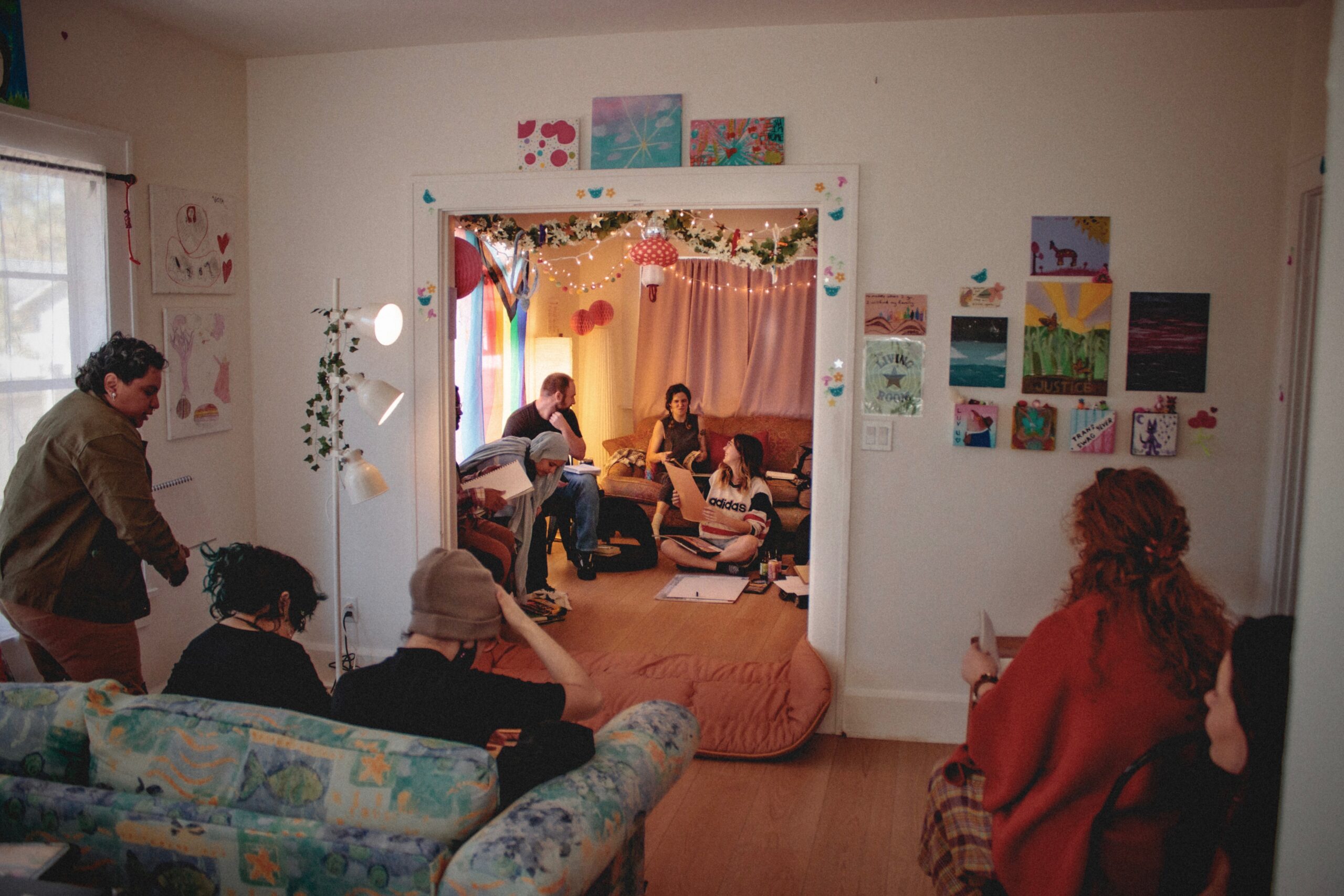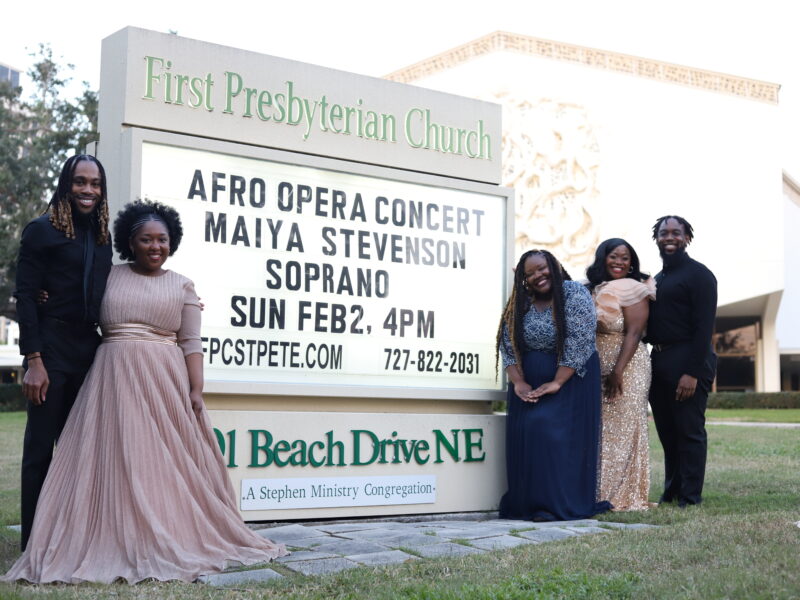It was Oct. 18, 2015.
There were about 400 of us. 400 people, dressed in black with green and red accents. Some holding signs, others holding flags – all with expressions of solitude and peace.
There were small boys and girls, men and women, and scholars with black and white turbans on their heads.
We were synchronized, walking in silence. Tears were flowing from all sets of eyes, no matter the age.
Signs were held that read “Muslims Against ISIS,” “Terrorism Has No Religion,” “Islam Means Peace.” The messages were short – but powerful. And hopefully, they would make a statement to the bystanders of Lake Eola Park in Orlando.
We were mourning. It was the 10th day of Muharrum, the day that Imam Hussain, leader of the Shia Islamic nation, was assassinated along with the rest of Prophet Muhammad’s immediate family, 1,400 years ago.
On this day, known as Ashoura, Shia Muslims commemorate the fight of Hussain to spread the messages of sacrifice, peace and love for our religion.
The lake was small and fenced in by a narrow sidewalk stained with gum, only big enough for three people to stand, side by side. 400 pairs of feet walked atop the cement, all finding a purpose. It was a tight area for the demonstration, but that would not stop us.
Islamic scholar Syed Shabeer Kirmani broadcast a message to both the crowd he led, and the ones that watched.
“We stand here together to stand for peace, and against oppression. We are brothers and sisters of all faiths of humanity. We are here together standing with everyone, the Christian community, the Jewish community, the white community, the black community, the hispanic community and whatever community it may be. We stand together in solidarity with you telling that this is our home and we will live with you in peace and we are against the innocent killing of anyone across the globe.”
The bystanders stood along the lake where we were making our rounds, taking photographs and videos, applauding us, shaking our hands and smiling.
It was a diverse crowd – white, black, hispanic, asian. All listening to the message our group strived to deliver, and I hoped at least one would go home that night and think differently of our people.
A timid, Caucasian woman came to my side with tears in her eyes.
“I’ve never seen such unity, thank you for enlightening me.”
In the sea of black, I could spot my brother at the front of the line. His black shirt was noticeably drenched in sweat as he preached. His facial expressions were mixture of empathy, pain and compassion.
“Those ISIS militants claiming to be of Islam are NOT Muslim, walk with us and hear our message,” he said.
His voice began to shake. Watching my brother speak with such energy instantly brought me to tears.
I held a sign that said: “…if any one slew a person – it would be as if he slew the whole people: and if anyone saved a life, it would be as if he saved the life of the whole people” (Quran verse 5:32).
I was dressed in black from my Hijab down to my Vans. Wearing black in Florida is a struggle on its own, let alone walking in the heat from noon until 2 p.m.
My arms grew tired and my legs began to tremble, but the energy resonating through the crowd gave me a sense of strength to continue the walk and ignore the physical fatigue.
There were tents around the sidewalk. A podium stood at the center of an outdoor amphitheater, where the crowd came to relax after the procession.
The theater was surrounded by small businesses – a convenience store, coffee shops and private offices. New faces slowly approached the tents – people who were not present at the beginning of the demonstration.
After the walk, we handed water bottles to bystanders.
A once somber crowd became elated as bystanders flooded the Muslims with questions and applause.
The crowd of us, in black, mostly Middle Easterners, became speckled with others. I knew that we had done our part.
We all made our way to our cars and back to our mosques to join our community in the nightly program.
“Did you feel like you were out of this world, or was it just me?” my brother asked.
“I can’t even explain how I feel,” I said. “It’s indescribable.”
***
It was Nov. 12, 2015.
My mother sat at the kitchen counter, in a frantic hurry to get my aunt on the phone.
She lives in Lebanon.
We received a message that there was a double-suicide bombing in our homeland of Beirut, Lebanon, just hours before.
43 innocent lives were taken – ISIS – there was no way around them.
We’ve all seen videos of the barbaric creatures dressed in black and, ironically, making statements that wrongly reflect the real message of Islam
In one video, an ISIS militant can be seen gloating over a kill he had just made. Holding the dead man’s identity card to the camera, he asked someone where the man was from.
When the militant found out that his innocent victim was a Shia Muslim from Iraq, he was overjoyed and started shouting, “He is a Shia! Praise to Allah, the Lord of the Universe. I killed him! I killed a Shia! I killed a Shia!”
My stomach folded in knots, I could feel my face becoming warm.
I couldn’t help but cry until I became nauseous…deathly afraid of what was to come.
***
It was Nov. 13, 2015.
Just one day had passed, and ISIS carried out another attack. This time it was in Paris. 130 lives were lost.
I thought to myself, here we go again.
Right when I started to feel like Islam was at peace with Western civilization, ISIS took it away.
It reminded me of 9/11, when I was afraid to tell my classmates that I was Muslim. To avoid any threats or discrimination, my father didn’t let my mother take us out on her own.
***
And after the Lebanon and Paris attacks, threats poured in.
The Sheikh of the St. Petersburg and Tampa Mosque advised us to start using the buddy-system. All the mosque’s weekly programs were canceled until further notice.
My family and I sat in the living room, mourning over the deaths in Paris, Lebanon, Iraq and Palestine.
We received another threat to the mosque. This time, much greater than before.
The man left a voicemail, stating, “I have a militia that’s going to come down to your Islamic Society in Pinellas County and fire bomb you…shoot whoever’s there, right in the head.”
As Prophet Muhammad once said, “The hour will come when leaders are oppressors. A time will come when the hypocrites will live secretly among you, and the faithful will try to live their religion in secret among others.”


